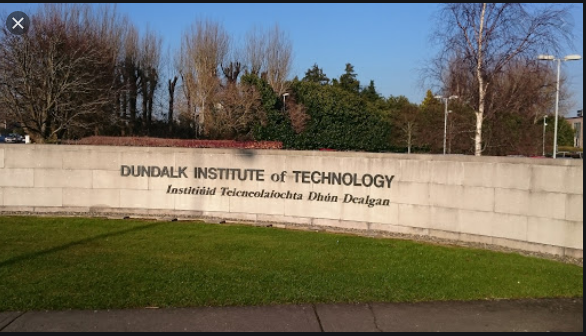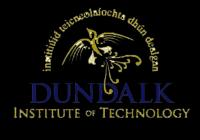Bachelor of Engineering in Electrical & Electronic Systems
Electrical and Electronic Engineering graduates work in a broad and exciting engineering field that includes renewable energy, power generation and distribution, product design, telecommunications, IT, manufacturing, food processing, agriculture, pharmaceuticals, medical, transport, automation, control, building services, petrochemicals and research.
Graduates of Electrical and Electronic Engineering design, specify, supervise and operate complex systems and products based on electrical principles, used in these areas.
Electronic products encompass a range from consumer durable goods, environmental control, ICT installations, automation & robotic systems, transportation systems as well as medical diagnostic & therapeutic, scientific and engineering measurement.
All these products must be carefully designed, manufactured, installed and maintained in an unobtrusive, ergonomic and aesthetically pleasing manner. These products and services must operate in an effective and efficient manner to international standards within a global marketplace. They must satisfy safety and product liability requirements in a manner, which meet client expectations of quality and cost.
Graduates of this course must be able to engage in any of these activities. These are long term functional attributes and not subject to local or short duration economic perturbation.
The aim of this course is, therefore:
- Employ an engineering approach to the solution of engineering technology problems.
- Identify, formulate, analyse and contribute to the solution of engineering technology problems
- Select and apply solutions from a knowledge of engineering sciences and mathematics
- Contribute to the design of a component, a system or process to meet specified needs
- Design and conduct experiments to analyse and interpret data
- Integrate innovation and enterprise in their practice of engineering
- Work effectively as an individual, in teams, and in multi-disciplinary settings
- Undertake lifelong learning
- Communicate effectively with the engineering community and with society at large
- Employ high ethical standards in the practice of engineering
- Identify the environmental impact of the practice of engineering.
Intakes
- Jan
- Sep
Application Processing Time in Days: 7
Application Process
Minimum English Language Requirements
| English Level Description | IELTS (1.0 -9.0) | TOEFL IBT (0-120) | TOEFL CBT (0-300) | PTE (10-90) | |
|---|---|---|---|---|---|
| Expert | 9 | 120 | 297-300 | 86-90 | |
| Very Good | 8.5 | 115-119 | 280-293 | 83-86 | |
| Very Good | 8 | 110-114 | 270-280 | 79-83 | |
| Good | 7.5 | 102-109 | 253-267 | 73-79 | |
| Good | 7 | 94-101 | 240-253 | 65-73 | |
| Competent | 6.5 | 79-93 | 213-233 | 58-65 | |
| Competent | 6 | 60-78 | 170-210 | 50-58 | |
| Modest | 5.5 | 46-59 | 133-210 | 43-50 | |
| Modest | 5 | 35-45 | 107-133 | 36-43 | |
| Limited | 4 | 32-34 | 97-103 | 30-36 | |
| Extremely Limited | < 4 | < 31 | < 93 | < 30 |
Job Opportunity Potential
Careers and Employability is DkIT's dedicated careers and enterprise service. We're here to support students and graduates identify their career goals, plan for their future and achieve their full personal and professional potential.
Your Careers Team
DkIT’s Careers & Employability Centre works to ensure that graduates of DkIT are self-aware, self-resourceful and work ready. To do this, we work with students from first year through to graduation in the area of Employability skills and Student Work Placement.
So whether you’re a student unsure of your next steps or looking for help with a CV, a graduate seeking work or an employer with a great opportunity, please do speak with us.
Placement Student Information - What I need to know
Work Placement is a compulsory assessed module of your programme of study.
Placement is a vital aspect of your learning journey at DkIT with a range of benefits for you including:
- Enhancing your third level study experience - experiential learning
- Putting learning into practice – making sense of theory
- Learning in “Real Time” - in a supportive, professional environment
- Professional Skills Development
- Personal Growth & Confidence
- Motivates for remainder of study period
- Test out career options
- Contributing to the work of an organisation in your chosen area of study
- Increases employability – through relevant work experience and references
- Build contact base for future employment
- Additional information is found below.
Work Placement — A Best Practice Guide for Students
Securing a Work Placement is similar to that of getting a job and therefore is a competitive process. Think about what an employer is looking for in a full time employee and how you can best match that criteria and add value to the organisation.
The list of resources below will be useful not only to your placement experience but also to your job hunting skills when you graduate.
Interviews
It is common practice that companies/ host sites will require students to attend interview to secure their placement. An interview can be a daunting experience for students but with focused preparation and research you can eliminate many of your concerns and fears.
Sample Interview Questions
Interview Preparation Guide
GradIreland — Graduate Job Interview Guide
PSW Opportunity
PSW is 2 years.
Admission Requirement / Eligibility Criteria
- Course Code: DK740
- Course Type: Full Time
- Course Level: Bachelors/UG Degree
- Duration: 03 Year
-
Total Tuition Fee:
32850 EUR
Annual Cost of Living: 10500 EUR
Application Fee: 50 EUR
Similar Programs
- BSc in Computing Systems and Operations (Software Development and DevOps) at Dundalk Institute of Technology
- BSc (Hons) in Computing Systems and Operations (Software Development and DevOps) at Dundalk Institute of Technology
- BSc (Hons) in Construction Project Management (add-on) at Dundalk Institute of Technology
- BSc (Hons) in Civil Engineering (Add-on) at Dundalk Institute of Technology
- BSc in Construction Management at Dundalk Institute of Technology
- BSc in Building Surveying at Dundalk Institute of Technology

